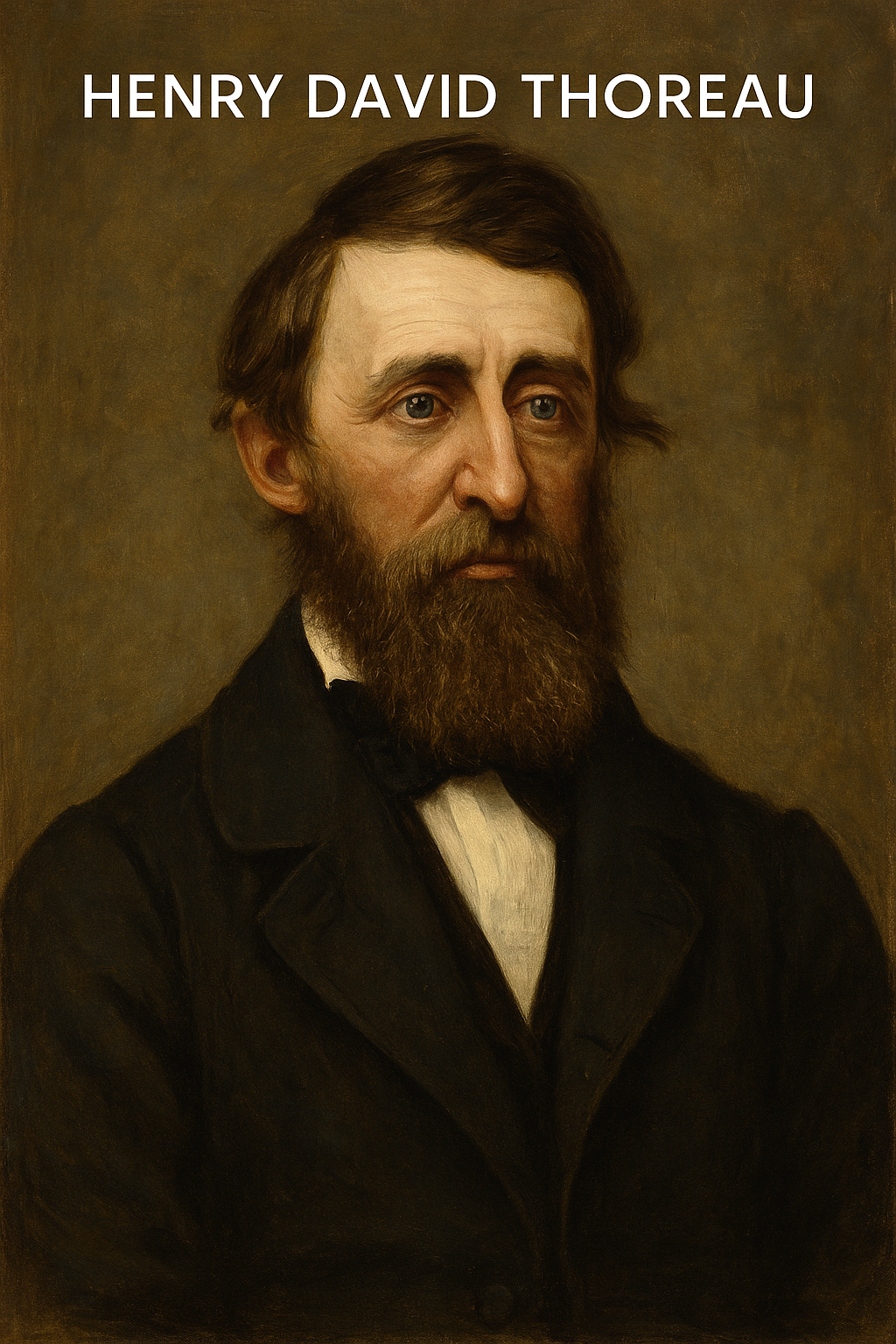Henry David Thoreau: Voice of American Simplicity and Nature
Henry David Thoreau is one of the most iconic figures in American literary and philosophical thought. His works on simple living, civil disobedience, and spiritual connection to nature continue to inspire readers worldwide. As a central figure of the American Renaissance, Thoreau shaped national identity through his life and ideas.
Early Life and Education
Henry David Thoreau was born in Concord, Massachusetts, in 1817. From a young age, he showed an affinity for literature and learning. He studied at Harvard College, where he was exposed to classic literature, philosophy, and the ideas that would later shape his worldview.
After graduation, Thoreau explored various jobs, including teaching and pencil-making, but he always returned to writing and reflecting on the natural world. The influence of Ralph Waldo Emerson, his mentor and friend, encouraged Thoreau to explore his individuality and live according to his inner beliefs.

Henry David Thoreau and Transcendentalism
Henry David Thoreau became a powerful voice in the transcendentalist movement. This philosophical and literary movement stressed intuition, spiritual experience, and the sacredness of nature. Thoreau fully embraced these ideas and turned them into action by living in harmony with the natural world.
In 1845, Thoreau moved to a small cabin by Walden Pond, where he lived for over two years. This experience formed the basis of his masterpiece Walden, a reflection on simple living and personal independence. In Walden, Henry David Thoreau encourages readers to live deliberately, close to nature, and free from material excess.
Major Works and Contributions
The keyphrase Henry David Thoreau is most associated with two significant works: Walden and Civil Disobedience. Walden explores self-reliance and spiritual renewal through solitude and nature. Thoreau presents the idea that material possessions and societal expectations distract individuals from authentic life.
Civil Disobedience, originally a lecture, became a foundational text for nonviolent resistance. Thoreau argues that individuals have a moral duty to oppose unjust laws. His ideas later influenced global leaders like Mahatma Gandhi and Martin Luther King Jr., proving the lasting relevance of his thought.
Themes in Thoreau’s Writing
Henry David Thoreau consistently explores themes such as simplicity, nature, personal freedom, and nonconformity. He believed that people should live according to their values rather than societal expectations. His writing encourages deep self-reflection and resistance to blind obedience.
Nature plays a central role in his work, not just as scenery but as a teacher. He viewed natural environments as spiritual resources. For Thoreau, walking through the woods or observing a quiet pond revealed truths more profound than those found in books or institutions.
Style and Literary Impact
Henry David Thoreau used a clear, poetic style filled with metaphors and observations from nature. His sentences are often rich with imagery and layered meaning. He balances practical advice with philosophical insight, making his essays both readable and thought-provoking.
Thoreau’s contributions to American literature are immeasurable. His works challenge readers to question the status quo and discover their paths. He influenced not only literature but also politics, education, and environmentalism.
Personal Philosophy and Lifestyle
Henry David Thoreau lived by his principles. He practiced what he preached, often choosing solitude over society. His decision to move to Walden Pond was not an escape but a conscious effort to understand life at its core.
He also refused to pay taxes that funded slavery and the Mexican-American War, leading to his brief imprisonment. This act of civil disobedience became a symbol of resistance. Thoreau’s life proves that words can lead to action when rooted in sincere belief.
Influence on Later Thinkers
The writings of Henry David Thoreau left a lasting mark on the world. His work inspired major figures in the civil rights and peace movements. Gandhi credited Thoreau’s Civil Disobedience as the blueprint for nonviolent protest. Martin Luther King Jr. also drew from Thoreau’s principles during the American Civil Rights Movement.
Beyond politics, Thoreau influenced environmental thinkers and writers. His deep connection to the earth laid the groundwork for modern ecological awareness. Writers such as John Muir and Rachel Carson followed in his footsteps.
Criticism and Legacy
Although admired today, Henry David Thoreau faced criticism during his time. Some saw his lifestyle as impractical or his ideas as too idealistic. Critics claimed he romanticized poverty and solitude while benefiting from social privileges.
Yet, over time, appreciation for his work grew. Scholars and readers recognized the depth of his insights. His writing has now become part of American educational curricula, and Walden is read worldwide. His cabin at Walden Pond is a historic site visited by thousands annually.
Thoreau in the Modern World
In the modern era, the message of Henry David Thoreau feels more relevant than ever. His calls for environmental stewardship, ethical living, and thoughtful rebellion against injustice resonate with contemporary challenges. Thoreau asks readers to slow down, examine their lives, and live with purpose.
His ideas remind us that real change begins with the individual conscience. As technology and consumerism dominate society, Thoreau’s wisdom provides a much-needed return to simplicity and truth.
Conclusion: Thoreau’s Timeless Wisdom
Henry David Thoreau remains one of the most influential American thinkers and writers. His devotion to nature, personal integrity, and nonviolent protest shaped history and continues to inspire. He urged readers to live authentically, guided by conscience rather than convention.
By listening to the stillness of the woods, challenging injustice, and embracing self-reliance, Henry David Thoreau taught the world a powerful lesson: freedom is not given, it is lived. His legacy endures in classrooms, social movements, and the quiet moments when individuals choose truth over comfort.
Edgar Allan Poe: https://americanlit.englishlitnotes.com/edgar-allan-poe/
For English and American literature and grammar, visit Google: https://www.google.com
Discover more from Welcome to My Site of American Literature
Subscribe to get the latest posts sent to your email.
